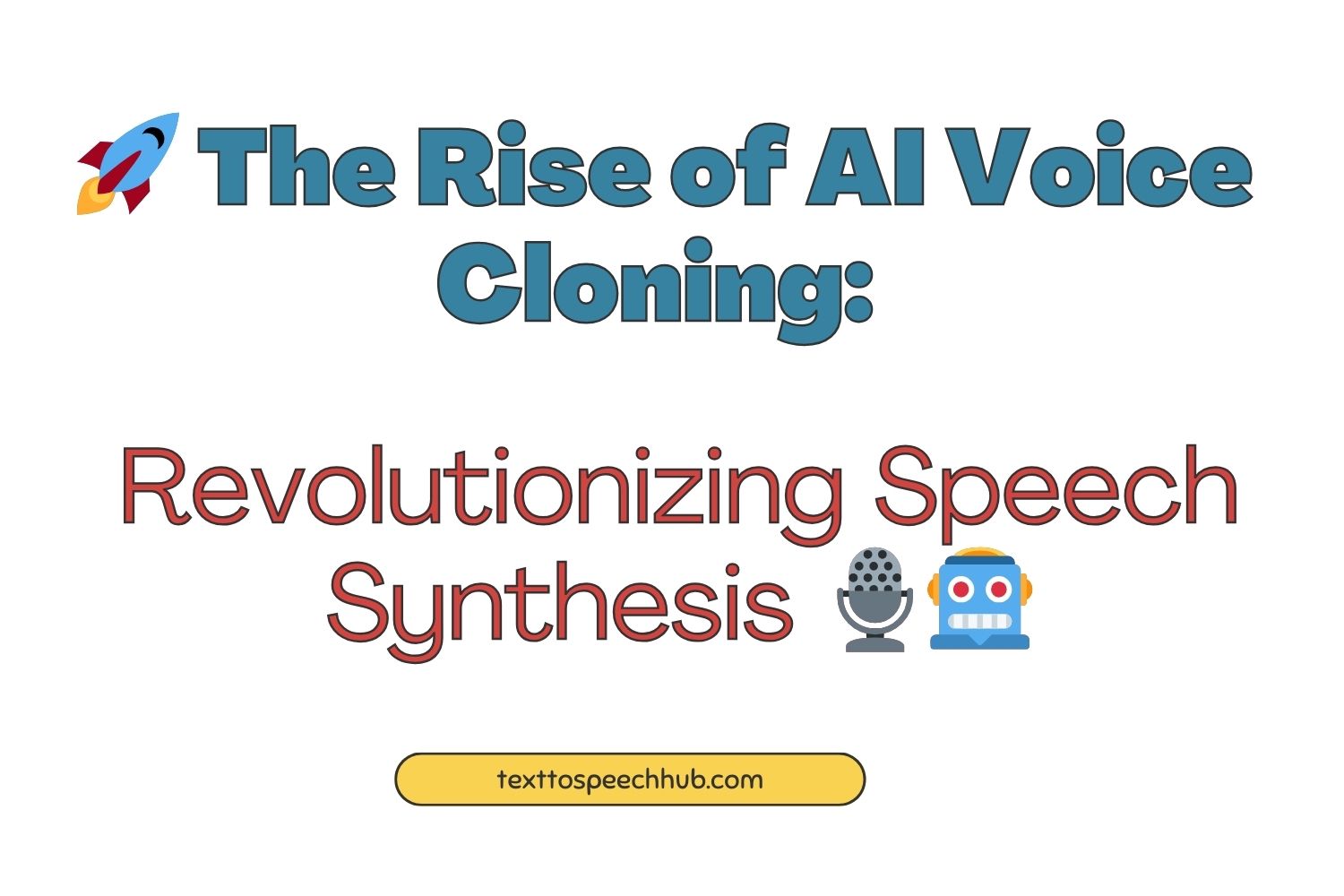🚀 The Rise of AI Voice Cloning: Revolutionizing Speech Synthesis 🎙️🤖

AI voice cloning is rapidly transforming how we interact with technology. From personalized assistants to customized brand voices, artificial intelligence can now replicate human speech with stunning accuracy.
But how does AI clone a voice, and what are its benefits and ethical concerns? Let's explore this fascinating innovation and its impact on media, business, and accessibility.
1️⃣ What is AI Voice Cloning? 🎤
AI voice cloning refers to the process of recreating a person’s voice using machine learning models. This technology analyzes recordings of a speaker and generates new speech that mimics their tone, pitch, and accent.
How It Works
🔹 Data Collection – AI models are trained using recordings of a person’s voice.
🔹 Deep Learning Algorithms – Neural networks analyze speech patterns, intonation, and pronunciation.
🔹 Speech Synthesis – AI generates new speech in the cloned voice, based on input text.
Major AI platforms like Amazon Polly, Google WaveNet, and ElevenLabs have pioneered voice cloning technology, making it more accessible than ever.
2️⃣ The Benefits of AI Voice Cloning 🚀
Voice cloning has applications across multiple industries, transforming how businesses and individuals use digital voices.
✅ Personalized AI Assistants – Imagine Siri, Alexa, or Google Assistant speaking in your own voice.
✅ Multilingual Content Creation – AI can clone voices in multiple languages, breaking down language barriers.
✅ Audiobook & Podcast Narration – Creators can produce audiobooks and podcasts without spending hours recording.
✅ Entertainment & Gaming – Game developers can replicate actor voices for more immersive storytelling.
✅ Accessibility – People with speech impairments can restore their voice using AI.
Companies are already using AI voice cloning to create unique and engaging experiences, making brand communication more personal.
3️⃣ The Ethical Dilemma of AI Voice Cloning ⚠️
While voice cloning has exciting benefits, it also raises serious ethical concerns:
❌ Deepfake Scams – Fraudsters can clone voices to impersonate people, leading to scams and identity theft.
❌ Misinformation & Fake News – AI-generated voices could be used to spread fake news or political propaganda.
❌ Privacy Violations – Without consent, using someone’s voice can lead to legal and ethical issues.
🔹 How Can We Prevent Misuse?
🔍 Regulation & Policies – Governments must create strict AI laws to prevent fraud.
🔍 Watermarking AI-Generated Speech – Tech companies should embed unique markers in AI voices for detection.
🔍 User Consent & Security – AI voice cloning tools should require explicit permission before cloning a voice.
AI voice cloning must be used responsibly to ensure trust and safety in the digital world.
4️⃣ The Future of AI Voice Cloning 🔮
What’s next for AI voice technology?
🚀 Real-Time AI Translation – AI voice cloning will allow instant translation in a cloned voice.
🚀 Voice Ownership – Creators will have full control over their AI-cloned voice, allowing them to license or monetize it.
🚀 AI-Human Collaboration – Actors, musicians, and podcasters may collaborate with AI to produce enhanced voice content.
🚀 Integration into Smart Devices – AI voices will be embedded into everyday tech, making interactions more natural.
Final Thoughts 💡
AI voice cloning is revolutionizing communication. It has the power to enhance storytelling, improve accessibility, and personalize digital experiences. However, its misuse poses risks that must be addressed with clear regulations and ethical AI development.
What do you think about AI voice cloning? Would you be comfortable using an AI version of your voice? Let us know in the comments! 💬🎤
🚀 Want to Try AI-Powered Text-to-Speech?
Generate lifelike AI voices with our free text-to-speech generator! Convert text into speech and download your voiceover instantly.
➡️ Try AI Voice Generation Now